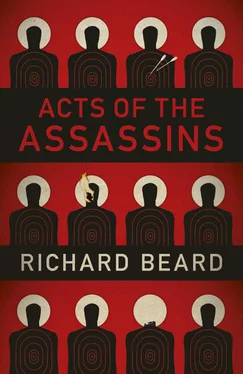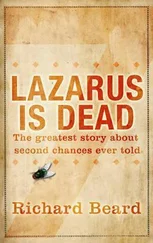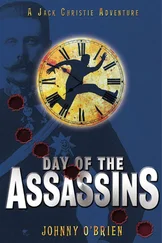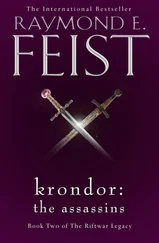Violence is Baruch’s territory, his background. He will approach the body, make his experienced assessments.
‘Naked,’ he says. ‘Makes sense. Safety measure.’
The assassin or assassins will have checked for concealed devices, drugs, amulets, looking to remove any protective padding or breathing apparatus that could keep Philip alive and later be misinterpreted as divine intervention.
‘Thorough,’ Cassius Gallio will say. ‘Whoever did this wanted to avoid another Jesus, a resurrection. No way Philip’s coming back, not after this. It’s a professional hit.’
The rope, Phoenician hemp designed for inland boats, will creak as the fibres stretch, as Philip’s inverted body catches the breeze. The complaint of rope is a warning signal, a sign of the times saying that whatever the man-made world has lashed together threatens to break apart.
For Cassius Gallio, the creaking rope will be a reminder of Judas in a field long ago, the beginning of the end of his career. ‘Still think Paul did this? He has alibis. He was nowhere near the killings of either Thomas or Philip. He’ll have witnesses.’
‘He disappeared from Antioch,’ Baruch says. ‘We had no idea where he went, and look at his record. When he killed Stephen he kept his hands clean, but from that period of his life he knows capable people, and they can follow instructions. You’ve seen his bodyguard. Cassius, you have to admit Paul has form. He does, doesn’t he?’
This, Gallio will later think, is the first time since they came together that Baruch has asked for an opinion. Cassius Gallio will look at the hanging naked body of Philip the disciple of Jesus and he will try to establish what this particular death changes. A Galilean eyewitness to the miracles of Jesus is dead, and a V of migrating ducks passes overhead. This year, next year. Sparrows in the ruins hop two-footed in search of packed-lunch crumbs, different sparrows but the same basic patterns, century after century. Nothing will obviously have changed.
‘Cut him down, for Christ’s sake.’
Tourists don’t bring the right kind of knife. The walkers and pilgrims have penknives for their cheese and apples, but nothing with the blade for Phoenician hemp. Baruch will have a knife.
‘What did you expect?’ he says. ‘I carry a knife. I’ve always carried a knife.’
Baruch will pull a Sicarii killing dagger from the sheath inside the back of his belt, but as he approaches Philip he is distracted by a flash of reflected light from a laminated board.
‘Wait a minute,’ he says. ‘We missed something. Take a look at this.’
A weathered information board that occupies an angle of the octagon in Philip’s martyrium. The text boxes are for the benefit of unprepared visitors, who may be interested to know that in most legends the disciple Philip was hanged upside down alongside a second disciple, his close friend Bartholomew. Bartholomew, at the decisive moment, was saved.
‘So where is this Bartholomew?’ Baruch will re-sheath his knife. ‘Philip is dead. Nothing we can do for him now. Let’s pick up the other one.’
In south-west Turkey only the Divriği hospital has the facilities to accept a foreign national in a critical condition after a brutal assault at Pamukkale.
‘I’m sending Claudia to join you,’ Valeria says by telephone. She is pleased by this latest development. ‘Wait for her. She’ll make sure you ask the right questions, but work together. Try to get some sense out of this Bartholomew.’
The Divriği, in the hills the other side of Hierapolis, bears no resemblance to Jude’s hospital in Beirut. The springs of Pamukkale have been a place of healing for centuries, and the city of Hierapolis has traditionally welcomed breakthroughs in medicine. Bartholomew’s private room has a waxed linoleum floor, and an Insect-o-Cutor fixed to the ceiling. The machine buzzes from time to time, killing indiscriminately, doing its work.
Cassius Gallio has used the authority of Security Code Yellow to relocate Bartholomew from the public ward. The disciple is unconscious, with IV drips in his arms and a catheter in his bladder, his body a filter for morphine and high-grade dextrose-saline. Gallio invites Baruch and Claudia to join him at the bedside, but Bartholomew won’t be answering questions.
‘Lucky bastard,’ Baruch says. ‘I’d have got something out of him.’
Unlike Philip, Bartholomew the disciple of Jesus hasn’t had half-inch Phoenician hemp sewn through his thigh muscles. The assassins tied him by the ankles and hauled him aloft beside his friend, and Bartholomew is suffering aneurism caused by a surfeit of blood to the brain. He also has lung damage, and skull trauma from when passers-by untied him but failed to protect his head. Each of these injuries alone could have sent him into a coma.
‘Why did the killers treat them differently?’
‘Time constraints?’
Gallio is trying to be realistic. The murder of Philip could have taken longer than expected, with the sewing involved. Bartholomew would have died, in any case, if he hadn’t been unexpectedly rescued. Luck. Too late for Philip, but Bartholomew with luck on his side was saved.
Though unluckily not soon enough to save him from a coma. The three investigators take turns in the two chairs, and remember hospitals they’ve visited in the past, their conflicted emotions as witnesses to the misfortune of others. Cassius Gallio has a clear picture of his stepdad waving away a nurse to show off the shiny stump of his amputated leg, admiring the elevation he could get and expecting Gallio to admire it too. The legion’s doctors had taken decisive action and Gallio’s stepfather was delighted. Their intervention would give him ten added years of life and this was the reason, he said, this was the reason that anyone of sane mind owed allegiance to the march of progress.
A trolley crashes in the corridor.
Claudia sits beside the ECG monitor, flips up the leather cover of her iPad and googles ‘coma’. Gallio has a side view of her face, her forceful nose, the upper lip tight over strong white teeth. Braces, probably, at just the right stage of teenage development. One day there will be no imperfections.
‘What would you have asked him?’ Claudia prepares to write notes, to take the positives from a frustrating situation.
‘Apart from who tried to kill you?’
‘Would be a good place to start,’ Baruch says. One more journey by plane and his reserves of patience will have emptied.
‘Is Jesus still alive?’ Gallio suggests. He’s interested in the killers only in so far as they can lead him to Jesus.
‘Don’t you hate Paul?’ Baruch says. ‘That’s what I’d ask him. What the fuck are we doing here?’
Claudia closes her iPad. ‘We’re wasting our time.’
Cassius Gallio wonders who she is. Analysts sit behind their desks, and that’s where they stay, compiling bar charts. Claudia is smarter than that, pretty, about the age Gallio was on his first tour of Jerusalem, and now Valeria has assigned her to Gallio’s case. Claudia had somehow been entrusted to him, or he to her, and Gallio suspects she may be a test sent by Valeria, a revenge across time. He admires her collarbone and feels the full, sad stupidity of unrequited lust.
Claudia flicks her wedding band with her thumbnail, making her ring finger jump. All the way from Rome for this.
‘You’ll be missed at home, I should think.’
Gallio tries out small talk, a Speculator instinct, never knowing what he’ll find until he finds it. He’s feeling for cracks that may later widen to let a less guarded Claudia out, let Cassius Gallio manoeuvre in. ‘Your husband must miss you.’
He won’t make the same mistake twice, foolish, lovesick, spying on a life he can never have.
Читать дальше












